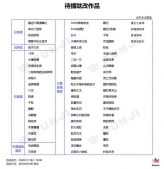本文实例讲述了C#读写INI文件的方法。分享给大家供大家参考。具体如下:
虽然微软早已经建议在WINDOWS中用注册表代替INI文件,但是在实际应用中,INI文件仍然有用武之地,尤其现在绿色软件的流行,越来越多的程序将自己的一些配置信息保存到了INI文件中。
INI文件是文本文件,由若干节(section)组成,在每个带括号的标题下面,是若干个关键词(key)及其对应的值(Value)
[Section]
Key=Value
VC中提供了API函数进行INI文件的读写操作,但是微软推出的C#编程语言中却没有相应的方法,下面是一个C# ini文件读写类,从网上收集的,很全,就是没有对section的改名功能,高手可以增加一个。
1 2 3 4 5 6 7 8 9 10 11 12 13 14 15 16 17 18 19 20 21 22 23 24 25 26 27 28 29 30 31 32 33 34 35 36 37 38 39 40 41 42 43 44 45 46 47 48 49 50 51 52 53 54 55 56 57 58 59 60 61 62 63 64 65 66 67 68 69 70 71 72 73 74 75 76 77 78 79 80 81 82 83 84 85 86 87 88 89 90 91 92 93 94 95 96 97 98 99 100 101 102 103 104 105 106 107 108 109 110 111 112 113 114 115 116 117 118 119 120 121 122 123 124 125 126 127 128 129 130 131 132 133 134 135 136 137 138 139 140 141 142 143 144 145 146 147 148 149 150 151 152 153 154 155 156 157 158 159 160 161 162 163 164 165 166 167 168 169 170 171 172 173 174 175 176 177 178 179 180 181 182 183 184 185 186 187 188 189 190 191 192 193 | using System;using System.IO;using System.Runtime.InteropServices;using System.Text;using System.Collections;using System.Collections.Specialized;namespace wuyisky{ /// <summary> /// IniFiles的类 /// </summary> public class IniFiles { public string FileName; //INI文件名 //声明读写INI文件的API函数 [DllImport("kernel32")] private static extern bool WritePrivateProfileString(string section, string key, string val, string filePath); [DllImport("kernel32")] private static extern int GetPrivateProfileString(string section, string key, string def, byte[] retVal, int size, string filePath); //类的构造函数,传递INI文件名 public IniFiles(string AFileName) { // 判断文件是否存在 FileInfo fileInfo = new FileInfo(AFileName); //Todo:搞清枚举的用法 if ((!fileInfo.Exists)) { //|| (FileAttributes.Directory in fileInfo.Attributes)) //文件不存在,建立文件 System.IO.StreamWriter sw = new System.IO.StreamWriter(AFileName, false, System.Text.Encoding.Default); try { sw.Write("#表格配置档案"); sw.Close(); } catch { throw (new ApplicationException("Ini文件不存在")); } } //必须是完全路径,不能是相对路径 FileName = fileInfo.FullName; } //写INI文件 public void WriteString(string Section, string Ident, string Value) { if (!WritePrivateProfileString(Section, Ident, Value, FileName)) { throw (new ApplicationException("写Ini文件出错")); } } //读取INI文件指定 public string ReadString(string Section, string Ident, string Default) { Byte[] Buffer = new Byte[65535]; int bufLen = GetPrivateProfileString(Section, Ident, Default, Buffer, Buffer.GetUpperBound(0), FileName); //必须设定0(系统默认的代码页)的编码方式,否则无法支持中文 string s = Encoding.GetEncoding(0).GetString(Buffer); s = s.Substring(0, bufLen); return s.Trim(); } //读整数 public int ReadInteger(string Section, string Ident, int Default) { string intStr = ReadString(Section, Ident, Convert.ToString(Default)); try { return Convert.ToInt32(intStr); } catch (Exception ex) { Console.WriteLine(ex.Message); return Default; } } //写整数 public void WriteInteger(string Section, string Ident, int Value) { WriteString(Section, Ident, Value.ToString()); } //读布尔 public bool ReadBool(string Section, string Ident, bool Default) { try { return Convert.ToBoolean(ReadString(Section, Ident, Convert.ToString(Default))); } catch (Exception ex) { Console.WriteLine(ex.Message); return Default; } } //写Bool public void WriteBool(string Section, string Ident, bool Value) { WriteString(Section, Ident, Convert.ToString(Value)); } //从Ini文件中,将指定的Section名称中的所有Ident添加到列表中 public void ReadSection(string Section, StringCollection Idents) { Byte[] Buffer = new Byte[16384]; //Idents.Clear(); int bufLen = GetPrivateProfileString(Section, null, null, Buffer, Buffer.GetUpperBound(0), FileName); //对Section进行解析 GetStringsFromBuffer(Buffer, bufLen, Idents); } private void GetStringsFromBuffer(Byte[] Buffer, int bufLen, StringCollection Strings) { Strings.Clear(); if (bufLen != 0) { int start = 0; for (int i = 0; i < bufLen; i++) { if ((Buffer[i] == 0) && ((i - start) > 0)) { String s = Encoding.GetEncoding(0).GetString(Buffer, start, i - start); Strings.Add(s); start = i + 1; } } } } //从Ini文件中,读取所有的Sections的名称 public void ReadSections(StringCollection SectionList) { //Note:必须得用Bytes来实现,StringBuilder只能取到第一个Section byte[] Buffer = new byte[65535]; int bufLen = 0; bufLen = GetPrivateProfileString(null, null, null, Buffer, Buffer.GetUpperBound(0), FileName); GetStringsFromBuffer(Buffer, bufLen, SectionList); } //读取指定的Section的所有Value到列表中 public void ReadSectionValues(string Section, NameValueCollection Values) { StringCollection KeyList = new StringCollection(); ReadSection(Section, KeyList); Values.Clear(); foreach (string key in KeyList) { Values.Add(key, ReadString(Section, key, "")); } } ////读取指定的Section的所有Value到列表中, //public void ReadSectionValues(string Section, NameValueCollection Values,char splitString) //{ string sectionValue; // string[] sectionValueSplit; // StringCollection KeyList = new StringCollection(); // ReadSection(Section, KeyList); // Values.Clear(); // foreach (string key in KeyList) // { // sectionValue=ReadString(Section, key, ""); // sectionValueSplit=sectionValue.Split(splitString); // Values.Add(key, sectionValueSplit[0].ToString(),sectionValueSplit[1].ToString()); // } //} //清除某个Section public void EraseSection(string Section) { if (!WritePrivateProfileString(Section, null, null, FileName)) { throw (new ApplicationException("无法清除Ini文件中的Section")); } } //删除某个Section下的键 public void DeleteKey(string Section, string Ident) { WritePrivateProfileString(Section, Ident, null, FileName); } //Note:对于Win9X,来说需要实现UpdateFile方法将缓冲中的数据写入文件 //在Win NT, 2000和XP上,都是直接写文件,没有缓冲,所以,无须实现UpdateFile //执行完对Ini文件的修改之后,应该调用本方法更新缓冲区。 public void UpdateFile() { WritePrivateProfileString(null, null, null, FileName); } //检查某个Section下的某个键值是否存在 public bool ValueExists(string Section, string Ident) { StringCollection Idents = new StringCollection(); ReadSection(Section, Idents); return Idents.IndexOf(Ident) > -1; } //确保资源的释放 ~IniFiles() { UpdateFile(); } }} |
目前C# 对ini文件操作基本上要被xml文件取代了,但是我觉得ini文件的读写仍然是编程的基本,是必须会的
希望本文所述对大家的C#程序设计有所帮助。





